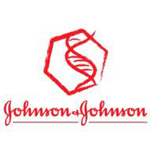Janssen and USAID collaborate to expand access to anti-multidrug-resistant tuberculosis (MDR-TB) compound
Posted: 12 December 2014 |
Memorandum of Understanding signed to address the global health threat of antibiotic-resistant bacteria…


Johnson & Johnson today announced that its affiliate Janssen Therapeutics, Division of Janssen Products, LP (Janssen), has signed a Memorandum of Understanding (MOU) representing the intention of the Company along with the United States Agency for International Development (USAID) to step up the fight against the health threat of antibiotic-resistant bacteria.
Antimicrobial resistance – and specifically that seen in multidrug-resistant tuberculosis (MDR-TB) – is one of the world’s most serious public health threats. MDR-TB is resistant to at least two of the four most commonly used medicines in today’s standard treatment regimen.1 Treatment is typically lengthy and complex,2 with an average 48 percent treatment success rate.3
Under the MOU, Janssen would contribute an estimated $30 million worth of its anti-MDR-TB treatment, about 30,000 courses. USAID will work with their implementing partners, national TB programs and with Janssen to ensure responsible access and appropriate use of the treatment. This commitment builds upon and strengthens the Company’s agreement with the Stop TB Partnership’s Global Drug Facility to facilitate access to quality-assured medicines in more than 100 countries worldwide. Over the coming months, Janssen and USAID will engage with the global TB community to solicit support, develop eligibility criteria and engage others to help address this public health crisis.
“Our work to combat the scourge of multidrug-resistant tuberculosis is far from over,” said Dr. Paul Stoffels, chief scientific officer and worldwide chairman, Pharmaceuticals, Johnson & Johnson. “With nearly half a million people affected worldwide and approximately 210,000 losing their lives to this disease in 2013, we are engaging in pioneering partnerships with likeminded stakeholders invested in global public health. Collaborating with USAID improves access to potentially lifesaving medicines for people living with MDR-TB.”
Despite the development of new MDR-TB treatment options, the ability to scale up the appropriate use of treatment regimens remains very challenging given weak health care infrastructures, which typically exist in vulnerable countries. However, in order to prevent further resistance, it is essential to ensure responsible access to new treatment options in these countries, including accurate diagnosis and documentation of use and impact.
“USAID is pioneering a new model of development – one grounded in public-private partnerships that can unlock unprecedented resources and opportunities for the world’s most vulnerable people,” said Dr. Rajiv Shah, USAID administrator. “By working alongside a global community of innovators, entrepreneurs and scientists, we can help break the cycle of extreme poverty and save millions of people from preventable disease.”
Johnson & Johnson is committed to advancing global health. Its Family of Companies has launched and continues to support a variety of comprehensive efforts toward strengthening the health of communities, improving maternal and child health and preventing the spread of infectious and preventable diseases worldwide. For more information on Johnson & Johnson global public health programs, visit www.jnj.com.
- WHO. Multidrug-Resistant Tuberculosis, Online Q&A. October 2014. Available at http://www.who.int/features/qa/79/en/index.html. Accessed December 2014.
- World Health Organization. Introduction and rational use of new drugs and drug regimens for TB treatment. Available at http://www.who.int/tb/publications/newdrugs_factsheet.pdf. Accessed December 2014.
- WHO. Multidrug-resistant tuberculosis (MDR-TB) 2014 Update. Available at http://www.who.int/tb/challenges/mdr/mdr_tb_factsheet.pdf?ua=1. Accessed December 2014.




